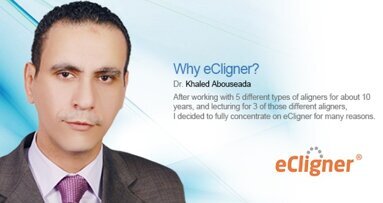AMMAN, Jordan: The rite of passage through university education into the professional world is one that for many students is fraught with tension. Psychological pressure to succeed, whether internally or externally induced, may have a seriously detrimental effect on a student’s well-being, leading to anxiety, depression and prolonged stress. A new study by researchers at the University of Jordan in Amman has shown that, while some students may seek physical activity and a healthy diet to redress their situation, some take a chemical route.
Conducted in December 2024, the cross‑sectional survey included 584 students, 418 in medicine and 166 in dentistry, and explored their patterns of propranolol use, side effects experienced, motives and awareness of potential risks. The study, led by Dr Hana Taha, associate professor of global public health, found that 9.9% of medical and dental undergraduates self-medicate with propranolol—a non-selective beta-blocker—primarily to manage examination-related anxiety. They largely accessed the drug without prescription directly from a pharmacy, friends or family members, and its use was mainly recommended to them by friends and peers. Despite 74.1% expressing awareness of the dangers of unsupervised use, 58.6% of users had taken the drug without a prescription.
The main motivations cited included anxiety reduction (65.5%) and examination stress relief (60.3 %), and 60.3% of users reported perceived academic improvement. However, 36.2% reported side effects such as dizziness and fatigue.
Similar studies in Saudi Arabia have reported even higher prevalence rates: 29.9% at King Saud bin Abdulaziz University for Health Sciences and 22.4% at King Saud University, both in Riyadh.
Propranolol is widely used for hypertension, arrhythmias, migraine and hyperthyroidism. Although it crosses the blood–brain barrier and produces anxiolytic effects, it lacks approval from the US Food and Drug Administration for anxiety management.
The authors emphasised the urgent need for curriculum reforms to educate medical and dental students on the risks of beta‑blocker self-prescription. They also advocated for enhanced psychosocial support services to promote healthier stress management strategies.
What is next? The study’s limitations include reliance on convenience sampling from a single university, a cross-sectional design and potential for self-report bias. Nonetheless, it highlights a concerning trend in self-medication, pointing to the need for prospective, multi-institutional research.
The study, titled “Inappropriate use of propranolol among medical and dental students at the University of Jordan: Cross-sectional study," was published online on 9 May 2025 in Frontiers in Medicine.
Topics:
Tags:
SHEFFIELD, UK: Given the relatively high levels of material waste produced during the course of dental procedures, a more sustainable approach to dentistry ...
AMMAN, Jordan: Dental and facial aesthetics do more than shape a smile; they can influence how individuals perform socially and academically, according to ...
AL-NABEK, Syria: Years of conflict have left deep psychological scars on Syria’s future healthcare workforce. New research among health sciences students ...
SALÉ, Morocco: Concerns about the potential cytotoxicity and environmental impact of conventional root canal irrigants have prompted the exploration of ...
LAGOS, Nigeria: The World Health Organization estimates that severe periodontal disease is found in 15–20 per cent of middle-aged adults worldwide. In...
Latest technological advancements available to dentists in the region through new agreement
ALEXANDRIA, Egypt: The global push for reaching net-zero emissions has led to a better understanding of the types and volumes of emissions attributable to ...
JEDDAH, Saudi Arabia: Dr Khaled Abouseada worked with five different types of aligner systems for about ten years before deciding on eCligner. Using 3-D ...
DOHA, Qatar: Virtual reality (VR) is rapidly gaining ground in dental training, particularly for restorative dentistry. A new bibliometric study from a team...
RIYADH, Saudi Arabia: Oral cancer constitutes a major front in the global fight against non-communicable diseases, and heightened public awareness of risk ...
Live webinar
Tue. 24 February 2026
10:00 pm UAE (Dubai)
Prof. Dr. Markus B. Hürzeler
Live webinar
Wed. 25 February 2026
12:00 am UAE (Dubai)
Prof. Dr. Marcel A. Wainwright DDS, PhD
Live webinar
Wed. 25 February 2026
8:00 pm UAE (Dubai)
Prof. Dr. Daniel Edelhoff
Live webinar
Wed. 25 February 2026
10:00 pm UAE (Dubai)
Live webinar
Thu. 26 February 2026
5:00 am UAE (Dubai)
Live webinar
Tue. 3 March 2026
8:00 pm UAE (Dubai)
Dr. Omar Lugo Cirujano Maxilofacial
Live webinar
Wed. 4 March 2026
5:00 am UAE (Dubai)
Dr. Vasiliki Maseli DDS, MS, EdM



 Austria / Österreich
Austria / Österreich
 Bosnia and Herzegovina / Босна и Херцеговина
Bosnia and Herzegovina / Босна и Херцеговина
 Bulgaria / България
Bulgaria / България
 Croatia / Hrvatska
Croatia / Hrvatska
 Czech Republic & Slovakia / Česká republika & Slovensko
Czech Republic & Slovakia / Česká republika & Slovensko
 France / France
France / France
 Germany / Deutschland
Germany / Deutschland
 Greece / ΕΛΛΑΔΑ
Greece / ΕΛΛΑΔΑ
 Hungary / Hungary
Hungary / Hungary
 Italy / Italia
Italy / Italia
 Netherlands / Nederland
Netherlands / Nederland
 Nordic / Nordic
Nordic / Nordic
 Poland / Polska
Poland / Polska
 Portugal / Portugal
Portugal / Portugal
 Romania & Moldova / România & Moldova
Romania & Moldova / România & Moldova
 Slovenia / Slovenija
Slovenia / Slovenija
 Serbia & Montenegro / Србија и Црна Гора
Serbia & Montenegro / Србија и Црна Гора
 Spain / España
Spain / España
 Switzerland / Schweiz
Switzerland / Schweiz
 Turkey / Türkiye
Turkey / Türkiye
 UK & Ireland / UK & Ireland
UK & Ireland / UK & Ireland
 International / International
International / International
 Brazil / Brasil
Brazil / Brasil
 Canada / Canada
Canada / Canada
 Latin America / Latinoamérica
Latin America / Latinoamérica
 USA / USA
USA / USA
 China / 中国
China / 中国
 India / भारत गणराज्य
India / भारत गणराज्य
 Pakistan / Pākistān
Pakistan / Pākistān
 Vietnam / Việt Nam
Vietnam / Việt Nam
 ASEAN / ASEAN
ASEAN / ASEAN
 Israel / מְדִינַת יִשְׂרָאֵל
Israel / מְדִינַת יִשְׂרָאֵל
 Algeria, Morocco & Tunisia / الجزائر والمغرب وتونس
Algeria, Morocco & Tunisia / الجزائر والمغرب وتونس

























































To post a reply please login or register